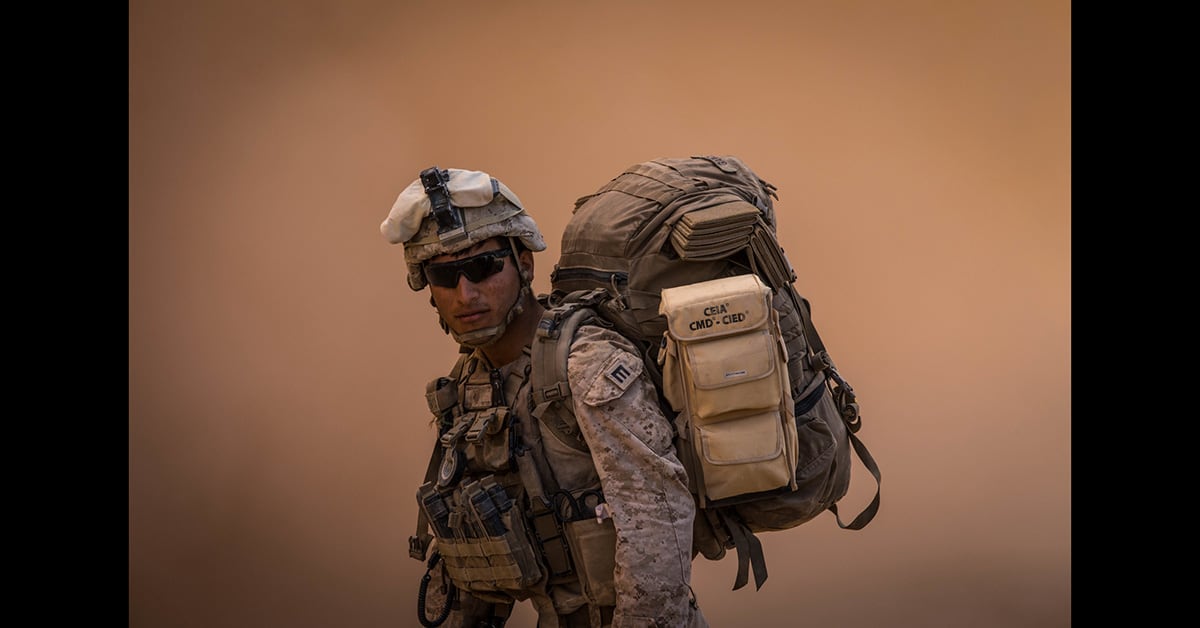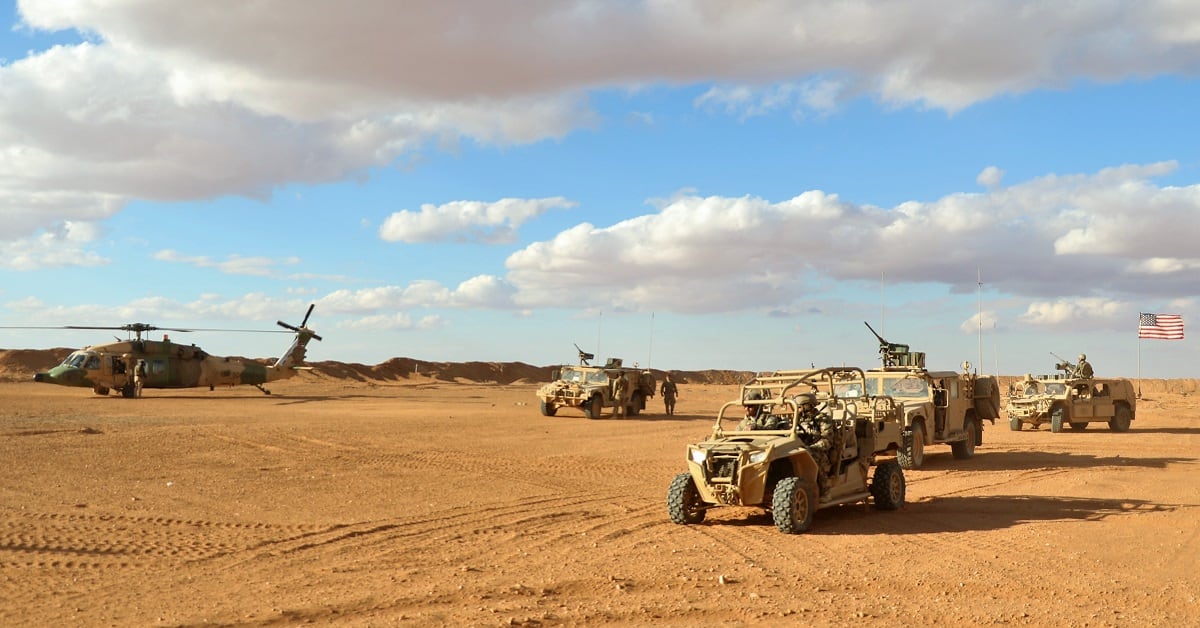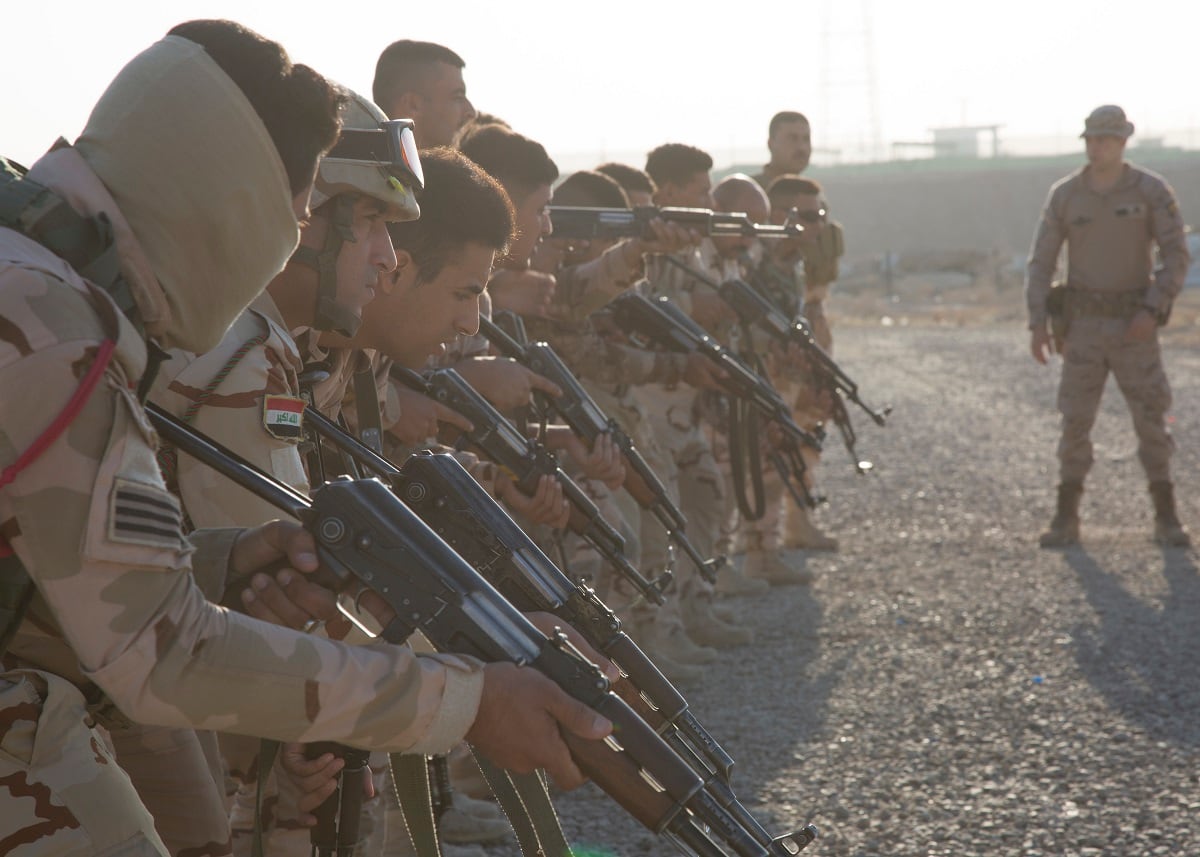Despite reports that the Islamic State terrorist group has lost 99 percent of its territory and shifted to insurgent tactics in Iraq and Syria, a recent report said an enduring defeat of the organization could take “years, if not decades.”
This, according to Department of Defense information provided to investigators with the DoD Inspector General, is in large part due to what is still needed to make Iraqi security forces “self-reliant.”
“Systemic weaknesses remain, many of which are the same deficiencies that enabled the rise of ISIS in 2014,” according to the quarterly IG report on Operation Inherent Resolve, the counter-ISIS operation that spans Iraq and Syria.
RELATED

Though top military officials recognized the gaps in capabilities among the Iraqi forces and that a “resurgence” of ISIS in the region is likely without sustained support and attention, congressional support for the fight against ISIS has decreased in the new fiscal year and an estimated $230 million in U.S. stabilization funds earmarked for Syria has been shifted to other countries.
The quarterly report on OIR noted that while security in cities such as the capital Baghdad has improved to such a degree that security forces have removed about 300 police and security checkpoints and 1,000 barriers that divided and walled off the city.
The report covered July to September.
RELATED

As violence in the cities has decreased, ISIS mass casualty attacks and killings have increased in the rural areas where ISF has less control.
Ninety-two percent of the reported 285 violent attacks occurred in the crescent of provinces north of Baghdad, including Anbar, Ninewa, Salah ad Din, Kirkuk and Diyala.
ISIS fighters have killed three to four tribal leaders and village elders per week over the past six months, according to reports.
Iraqis still lack the ability to conduct basic intelligence gathering and have no qualified drone pilots, instead relying almost entirely on coalition forces to gather, analyze and disseminate intelligence.
“In effect, this means that the Iraqi senior leadership is dependent on the Coalition for information about their own military’s operations,” according to the report. “This strategy risks an enduring coalition presence in Iraq for years to come.”
Other foundational aspects of modern military command are sorely lacking.
“Coalition officials acknowledged that it is likely to take “a generation of officers with continuous exposure to Coalition advisers” before changes to the centralized command structure take hold,” according to the report.
Report authors also noted that ISF “could not function” without using personal cell phones. Commanders also require burdensome paper orders that can tie up operational work, delaying key movements in the field, far from the capital.
Todd South has written about crime, courts, government and the military for multiple publications since 2004 and was named a 2014 Pulitzer finalist for a co-written project on witness intimidation. Todd is a Marine veteran of the Iraq War.





